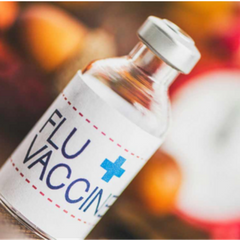
January is Birth Defect Awareness Month
January is Birth Defects Awareness Month and is also recognised in the US as Birth Defects Prevention month. It is a month where people work hard to promote information on birth defects. This means sharing and learning about everything from what defects there are, how many there are and how best to have a healthier pregnancy. The specific goal for this awareness month in 2017, is to promote the choices pregnant mums-to-be can make to help reduce the possibility of giving birth to a child with a life-long illness.
Of course, there are many illnesses and conditions that children are born with that can’t be avoided, regardless of how careful pregnant women are. But, there also numerous conditions which can be avoided, with the right behaviour and diet.

Healthy Pre-Pregnancy Supplements is a Must for Reducing Birth Defects
There are a number of things that someone who wants to become a mum can do ahead of her pregnancy to create the best possible start. If you’re planning to get pregnant, then taking Folic Acid beforehand and during the first 12 weeks of your pregnancy can help avoid the possibility of your baby developing a Neural Tube Defect (NTD).

Having enough Folic Acid in your blood can help your unborn baby’s brain and spinal cord development. That can help lower the chance of problems in early pregnancy, often before you even know you are pregnant, that can lead to lifelong disabilities such as spina bifida and anencephaly.
Unfortunately, taking the right amount of Folic Acid cannot guarantee your child won’t be born with an NTD. But, it is one more thing you can do to help your baby begin their development in the best environment.
What to Avoid During Pregnancy
Many of the foods, drinks and substances you should avoid during pregnancy are well-know. They include – but aren’t limited to:
- Smoking cigarettes.
- Taking illegal substances.
- Eating raw meat.
If a pregnant mother-to-be drinks too much alcohol during pregnancy, her baby is at risk of developing Foetal Alcohol Syndrome. That’s because the unborn baby’s body can’t process the alcohol as well as the mother can. This can lead to a number of problems once the baby is born, including:
- A smaller than average head.
- Slow growth ending in a smaller than average body.
- Movement and co-ordination problems known as cerebral palsy.
- Learning difficulties or behavioural problems.
- Hearing and vision problems.
- Problems or illnesses relating to a variety of internal organs.
In short, drinking too much alcohol that your baby’s developing body can’t properly process can result in a large number of avoidable conditions or illnesses.
Vaccinations and Birth Defects
There are some vaccinations it is safe to have during pregnancy and some that aren’t. The rules and recommendations on this particular topic can vary from country to country, making it difficult to know what to do. If you’re in doubt, make an appointment with an experienced midwife, or a doctor you trust, to discuss this in more detail.

Currently, though, the Flu Vaccine and Whooping Cough Vaccine are both considered safe to have during pregnancy in most countries. Vaccines that involve live viruses are thought less safe to have during pregnancy as they could infect the unborn child – although there is no evidence linking them to birth defects.
There are lots of other ways to stay healthy during your pregnancy and do the best to give your developing child the best start in life. They include your diet and exercise habits during pregnancy. If you’re unsure about what you can do to help protect your unborn child from potential birth defects there are lots of available resources. Or, you can contact a health professional with your questions and concerns.
Finding out more about how to prevent birth defects before and during pregnancy is something that all parents to be should make time for. If you’re interested in doing more reading on this subject, then take a look at our list of resources below.
http://conqueringchd.org/january-birth-defects-prevention-month/
https://migrc.org/library/BDPrevention.html
http://www.nhs.uk/conditions/pregnancy-and-baby/pages/pregnancy-and-baby-care.aspx
https://www.cdc.gov/ncbddd/birthdefects/prevention-month.html

